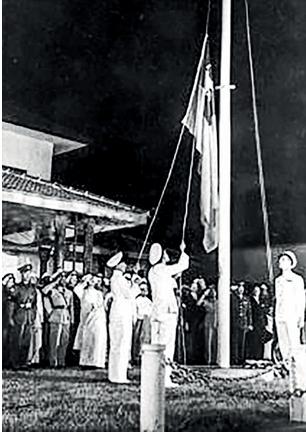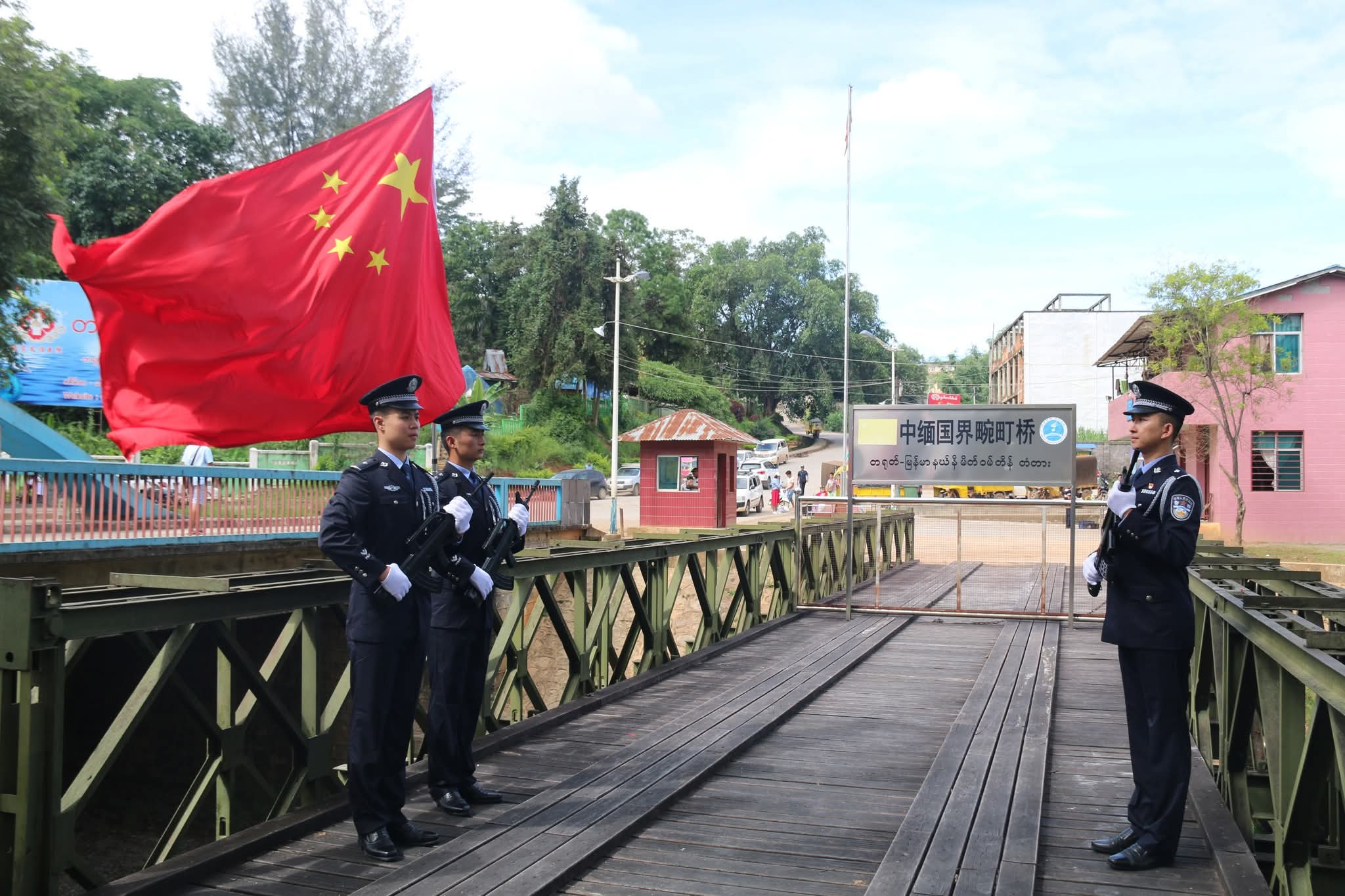Hailing the 77th Anniversary of Independence Day 2025: Aspiration of the people for long-lasting Independence
Posted_Date
Image

Body
THE 4th of January 2025 is a significant and historic day that marks the 77th anniversary of Myanmar’s liberation from colonial rule and attainment of independence. The people must have been eagerly waiting for the auspicious moment of gaining independence since January’s early days 77 years ago.
The city of Yangon enveloped in the serene atmosphere of the winter breeze waited with anticipation whether the national flag would be raised high upon its soil. 4 January 1948. The news of the impending declaration of independence at dawn spread from Yangon to even the furthest corners of the country. Historical records describe the night as one filled with restless anticipation. Some stayed awake through the night that it was a moment of great significance, eagerly waiting for that moment, others laying out plans for their newfound lives of freedom. Still, others were savouring the imagined taste of independence. Many remembered and paid tribute to the martyrs who had sacrificed their lives for this cause. That day marked over 100 years since liberation from the control of another, granting the people the right to carve their own nation’s destiny. It’s no surprise that everyone would feel immense joy and pride on such a momentous occasion.
At exactly 4:20 am, the sounds of cannons from the Myanmar Tatmadaw and the British navy stationed at the Yangon port were first heard. The thunderous cannon fire was not for warfare but rather to mark the auspicious occasion of Myanmar’s impending independence. At the end of the booming sounds, the UNIJET flag, which had stood for over 100 years in front of the Yangon City Ministers’ Office, gradually slid down from the top of the pole. Following this, the flag representing the entire nation of Myanmar rose swiftly from the bottom of the pole to the top, taking its place at the pinnacle. The gentle breeze of the winter season seemed to support the national flag as it fluttered proudly at the top, enhancing its dignity.
Upon gaining independence, some citizens shed tears of joy, overwhelmed with happiness. Others danced, with exhilaration, some gave offerings, and a few ran and shouted in boundless excitement. Yet, some quietly savoured the taste of freedom. Having been liberated from the bonds of servitude, the people’s collective aspiration was to unite and work towards progress and prosperity. The voices of children would resonate through schools. Factories would operate, their chimneys releasing smoke as a sign of industrial activity. Highways, railroads, and other transport networks would connect the mountains and plains, rural regions and cities, fostering movement and trade. They rejoiced with the hope that wars would cease and the great garden of peace would bloom eternally.
In a speech delivered at the City Hall before the assassination and before achieving independence, General Aung San, as if foreseeing the future, urged the people with clarity: “If you desire independence, cultivate the discipline necessary to attain it. If you want independence, maintain unity required to achieve it. If you wish for independence, build the foundations that can make it possible. After doing so, if you wish to truly savour the essence of independence, you must work hard, be disciplined, and, starting now, reform yourselves by shedding bad habits, outdated customs, and indulgences.” Although the General had warned us, we still lack discipline to this day. Unity continues to fade, and the people have yet to fully and completely experience the essence of freedom.
The British colonialists deliberately divided and marginalized the hill regions with ill intent, refusing to grant immediate independence to these areas. This strategy has perpetuated mistrust and discord between the hill people and the lowland people until today. Thanks to the far-sightedness of General Aung San and national race leaders, who engaged in extensive discussions and negotiations, the Panglong Agreement was reached, enabling a united struggle for independence. However, after the death of General Aung San, divisive ideologies based on distinctions such as hill people, lowlanders, Bamar, and ethnic minorities have continued to take root. These ideologies resurface whenever opportunities arise and are the root cause of the ongoing conflicts that have yet to be resolved.
The armed struggle for independence was witnessed during the British and Japanese eras, where the nation’s situation, upon gaining independence, was observed concerning historical events. After more than five years of intense war fare with Allied forces and the Japanese, much of the nation’s infrastructure was severely damaged by the time independence was achieved. Railway stations, railways, and roads were all in disrepair, factories and workplaces were in ruins, and in various cities and regions, there was widespread destruction due to bombings and air raids. The abandoned fields during the colonial withdrawal were also devastated. Many civilians, affected by the war, were still unable to return to their homes. Reconstruction efforts were on going, but much work remained to be done.
After gaining independence, Myanmar embarked on a path of development and nation-building. However, different political ideologies, diverse thoughts, and communities continued to clash. Communists went under ground. In northern Rakhine State, insurgents such as the Mujahideen sought control, and the situation escalated to the point where the Karen National Union (KNU) came close to Yangon, particularly near Insein. The government with lesser governing experience, dealing with the country’s internal conflicts, has had to navigate and resolve these challenges.
Even the Myanmar Tatmadaw couldn’t assert control amidst the complexity of internal rebel lions in different colours. Armed conflicts, which originated in the struggle for independence, still burn like an unquenchable fire up to this day.
The past 77 years were not only marked by wars. Successive national leaders have frequently called for discussions and negotiations to end conflicts driven by ideologies, ethnicity, religion, and other causes. They have often sought peaceful solutions through dialogues and agreements, setting aside weapons at times to find resolutions at the negotiation tables. On the other hand, governments have worked on the development of the nation, the nurturing of human re sources, and the construction of basic infrastructure. Moreover, the 2008 Constitution, based on a federal system, paved the way for a democratic path, and political reforms, such as the opening of new parliamentary spaces, enabled the establishment of democratic governments in two terms.
The journey of democracy has been marked by political changes that began with elector al fraud, leading through a period of political transition. This transition was accompanied by groups like CRPH and NUG, composed of exiled terrorist betrayers, as well as internal and external supporters who have fuelled violence. These individuals and armed groups, including the armed factions of PDF, aimed to destroy the nation and engage in widespread violence. It is well-known that they have committed more and more armed conflicts in their pursuit of their goals leading to the utter devastation of the country.
Despite achieving independence for a considerable period, the country has yet to attain political maturity. The people remain caught in the consequences of political in stability, including economic downturn, lack of rule of law, and the impacts of armed conflicts. The country’s essential infrastructure — such as roads, bridges, factories, workplaces, electricity supply, and human resource development projects — continues to be in a state of perpetual construction and destruction.
Some members of the new generation, having lost hope due to the news of those in hiding in the jungles, and those who, believing in instigations wedged by followers of foreign masterminds, invited and welcomed armed conflicts to their regions, have become homeless as a result. Young people, who cannot attend school because the schools are closed, lose their future. Political figures, who, under the pretext of revolution, have raised funds in various forms, are now enriching themselves abroad, using the name of politics to betray their country and its citizens. When these news reports and events are witnessed, they cause great distress to the people.
The armed groups should all look forward to peace with a vision and political maturity. They should strive for a peace ful resolution to end the armed conflicts. Based on the national spirit of adoring the country, citizens must all work together to build a genuine disciplined democratic nation. Every citizen deserves to experience the taste of freedom on the democratic path. Freedom is explicitly de fined as the right to vote. Each citizen has been entrusted with a small share of political power. This is the most fundamental political right, ensuring that every individual in a free country has the right to participate.
The main issue with the current armed conflicts is the attempt to solve political problems through military means. The government has kept the door to peace open continuously since the previous administrations. Even now, it remains open. If there is a true desire for durable peace, or if there is political maturity that genuinely considers the welfare of the people, then the weapons in hand should be laid down, and the parties should be brought to the negotiation table for peace. Since the 77th Anniversary of Independence Day, we pray that the people may soon ex perience the fruits of peace by resolving the conflicts that have long been a source of desire and struggle and that peace may flourish swiftly
30-12-2024 Myanma Alinn Translated.
Source: Global New Light of Myanmar






